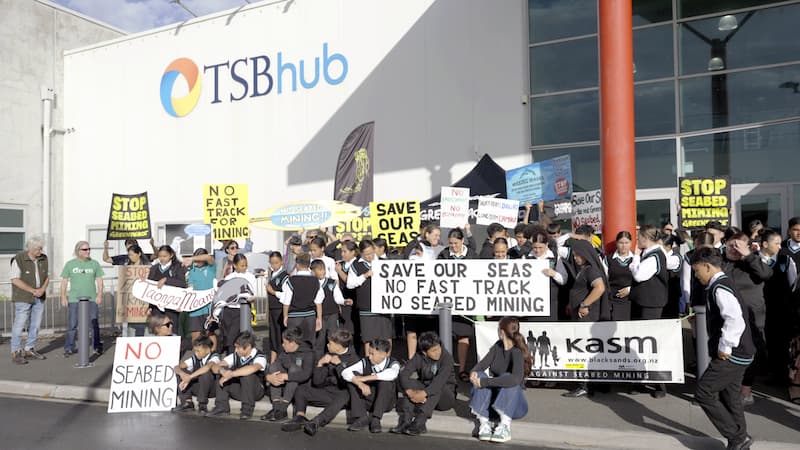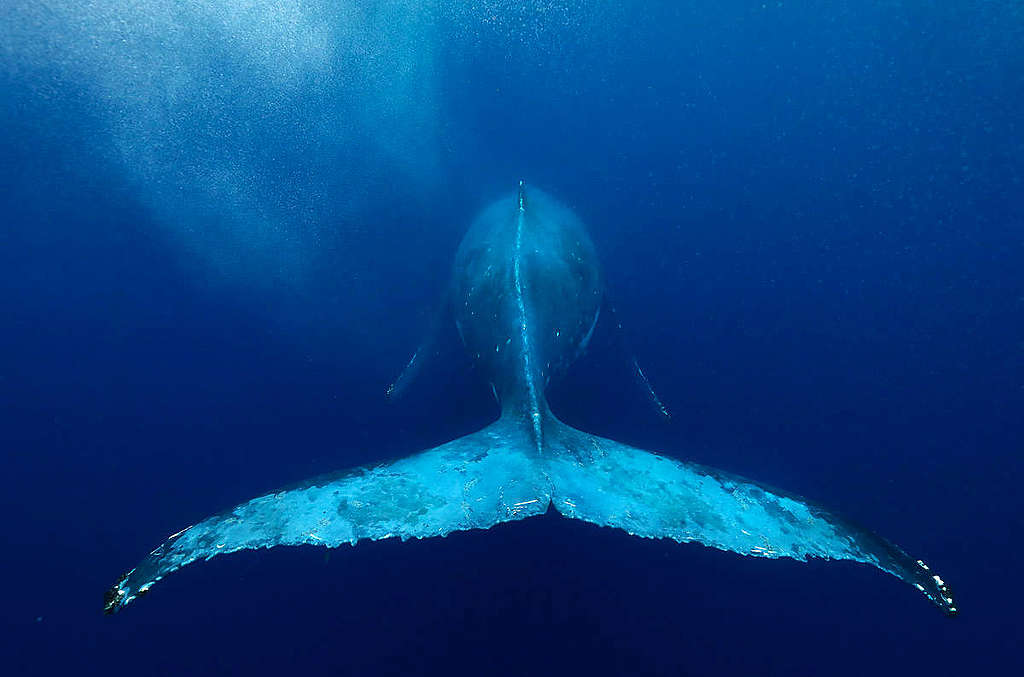Greenpeace says that the result of the EPA hearing for the Australian miner Trans Tasman Resources’ seabed mining proposal for Taranaki could set a globally significant precedent.
“Commercial seabed mining does not happen anywhere else on planet Earth. If it’s allowed to go ahead here in Taranaki, that could set a dangerous precedent which could see the destructive industry spread here and around the world,” says Greenpeace Aotearoa spokesperson Juressa Lee (Te Rarawa, Ngāpuhi, Rarotonga).
We’re in Hāwera on the third day of the seabed mining hearing before the EPA.
— Greenpeace Aotearoa (@GreenpeaceNZ) March 15, 2024
This hearing is important because it could set a precedent for seabed mining, not only here in Aotearoa but worldwide.
We will not stand by and watch the ocean be destroyed.#BanSeabedMining! pic.twitter.com/ZIRIZJcOky
“Already we see wannabe miners from the Global North insinuating themselves into the Pacific hoping to exploit the deep sea for profit despite mounting evidence that it would be harmful to the ocean and the livelihoods of Pacific peoples.
“Here in Hāwera, we can see how fierce the opposition is from mana whenua who are fighting to protect the South Taranaki Bight, kaimoana, whales, Māui dolphins and kororā who live here and also for the tino rangatiratanga of their people who have lived here for centuries.”

“Greenpeace stands with them for those reasons and also because allowing this destructive industry to get a foothold here in Taranaki could open the floodgates for similar industries to spring up all over the world,” says Lee.
“In Aotearoa and in the Pacific, generations of Indigenous Peoples have endured the incursions of extractive colonial industry that has caused biodiversity loss, accelerated the climate crisis, and increased inequity and human rights breaches. Trans Tasman Resources’ attempt to mine the seabed here in Taranaki and The Metals Company’s in the Pacific are just the latest examples.
“Governments must push back against continued growth of polluting extractive industries and invest in a fundamental shift toward systems and ways of living that operate in tune with nature in a circular economy where materials never become waste and nature is regenerated. Indigenous Peoples and their knowledge systems can lead the way in this shift,” says Lee.
Since its 2017 consent to dig up 50 million tonnes of the seabed every year for 35 years and dump 45 million tonnes back onto the seafloor, TTR has had that consent quashed by three courts. The Supreme Court sent it back to the EPA for the company to prove it would cause no material harm.
Part of the KASM and Greenpeace’s submissions will be heard today with the rest in the second hearing in April. The submission will highlight gaps in the TTR application, such as the fact that it hasn’t conducted a single survey of marine life in the waters of the South Taranaki Bight to ascertain how they might be affected by seabed mining.
The hearing is being live-streamed here.
Over the last ten years, Greenpeace has opposed seabed mining in Aotearoa and has more recently been campaigning globally against attempts by mining companies such as The Metals Company to start deep sea mining in the Pacific for polymetallic nodules.
There are also fears that Seabed Mining could be fast-tracked under the Government’s controversial new Fast-track Bill, which Greenpeace has called radically anti-nature with no regard for nature or democracy.
Following the Bill’s introduction to Parliament this week, Greenpeace said Resources and Oceans and Fisheries Minister Shane Jones’s recusal from involvement in decisions on seabed mining under the new fast-track legislation because of a conflict of interest with the fishing industry illustrates how open the process is to corruption.
Over 50,000 people have signed a Greenpeace petition to Ban Seabed Mining.

Seabed mining is a new threat to the oceans. Now is our chance to prevent the destruction before it’s too late.
